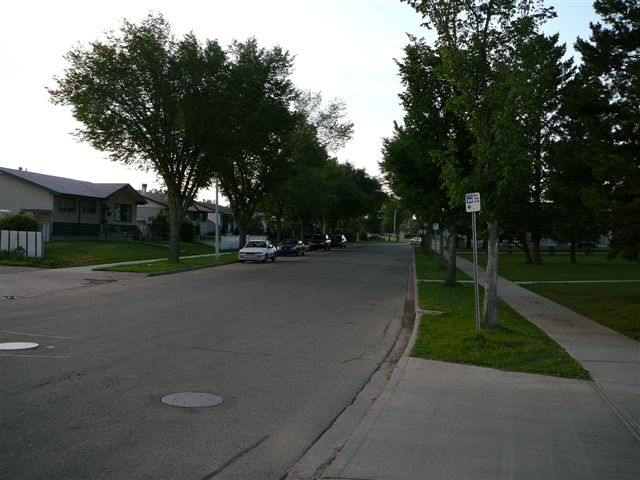Contact Us
Table of Contents
The Ultimate Guide to Edmonton Real Estate
Edmonton, Alberta, the capital city of Canada’s province of Alberta, offers a vibrant real estate market characterized by diverse opportunities and evolving trends. Whether you’re a first-time homebuyer, an investor, or someone looking to relocate, understanding the nuances of Edmonton’s real estate landscape is crucial. This comprehensive guide aims to provide you with a deep dive into everything you need to know about Edmonton real estate.
Understanding Edmonton’s Real Estate Market
Overview of Edmonton’s Market
Edmonton’s real estate market is known for its diversity and resilience. As one of Canada’s largest cities, it presents opportunities in both urban and suburban areas. The city’s economy, driven by sectors like oil and gas, technology, and education, plays a significant role in shaping its real estate dynamics. Historically, Edmonton’s market has shown a balance between demand and supply, influenced by economic conditions, population growth, and demographic shifts.
Economic Drivers
The health of Edmonton’s real estate market is closely tied to its economic drivers. Key sectors include:
- Oil and Gas: Historically, the oil and gas industry has been a cornerstone of Edmonton’s economy. Fluctuations in oil prices can impact the housing market, affecting both home values and the volume of real estate transactions.
- Technology and Innovation: Edmonton has been cultivating its technology sector, with numerous startups and tech companies contributing to economic diversification. This sector’s growth has led to increased demand for housing, particularly in urban areas.
- Education: With institutions like the University of Alberta, Edmonton attracts students and academic professionals, creating demand for rental properties and housing in proximity to educational facilities.
The Edmonton Housing Market
Property Types
Edmonton’s housing market features a range of property types catering to different buyer needs:
- Single-Family Homes: These are the most common type of property and range from modest bungalows to large, luxurious homes. Neighborhoods like Riverbend and Glenora offer upscale single-family options.
- Condominiums: Condos are popular among first-time buyers and those seeking low-maintenance living. Areas such as Downtown Edmonton and the Brewery District feature modern condo developments.
- Townhouses: Townhomes offer a middle ground between single-family homes and condos, often found in suburban areas like Terwillegar and Summerside.
- Investment Properties: Multi-family units, duplexes, and rental properties cater to investors looking to benefit from Edmonton’s rental market.
Market Trends
Recent trends in Edmonton’s real estate market include:
- Price Fluctuations: Real estate prices in Edmonton can vary significantly depending on economic conditions. Periods of economic growth often see rising property values, while downturns can lead to more affordable housing options.
- Urban vs. Suburban Demand: There is a growing interest in suburban areas due to their affordability compared to the urban core. However, urban areas remain popular for their proximity to amenities and services.
- Green Building: Increasingly, buyers are interested in sustainable and energy-efficient homes, leading to a rise in green building practices and eco-friendly developments.
Buying Real Estate in Edmonton
Steps to Buying a Home
- Determine Your Budget: Assess your financial situation, including your savings, income, and credit score. Use online calculators to estimate how much you can afford.
- Get Pre-Approved for a Mortgage: Securing pre-approval from a lender helps you understand your borrowing capacity and shows sellers that you’re a serious buyer.
- Find a Real Estate Agent: A knowledgeable agent can provide valuable insights into the market, help you find properties that meet your criteria, and guide you through the buying process.
- Start House Hunting: Explore neighborhoods, attend open houses, and view properties. Consider factors such as location, amenities, and proximity to work or school.
- Make an Offer: Once you find a suitable property, work with your agent to submit an offer. Be prepared for negotiations and potential counteroffers.
- Conduct a Home Inspection: Hire a professional inspector to assess the property’s condition and identify any potential issues.
- Close the Deal: Finalize the purchase by completing necessary paperwork, arranging for insurance, and transferring funds.
Key Neighborhoods
- Downtown: Known for its vibrant lifestyle, cultural attractions, and proximity to work, Downtown Edmonton features high-rise condos and modern apartment buildings.
- Old Strathcona: A historic area with a bohemian vibe, Old Strathcona is popular for its heritage homes, boutique shops, and lively arts scene.
- West Edmonton: Neighborhoods like Westmount and Jasper Place offer a mix of older homes and new developments, with convenient access to amenities and green spaces.
Selling Real Estate in Edmonton
Preparing Your Home for Sale
- Clean and Declutter: Ensure your home is clean, organized, and free of personal items that may distract potential buyers.
- Home Staging: Consider staging your home to highlight its best features and make it more appealing to buyers.
- Repairs and Upgrades: Address any minor repairs or upgrades that could enhance the property’s value and appeal.
Marketing Your Property
- Professional Photography: High-quality photos can make a significant difference in attracting buyers online.
- Online Listings: Utilize popular real estate websites and social media platforms to reach a broad audience.
- Open Houses: Hosting open houses allows potential buyers to view the property in person and get a feel for the space.
Working with an Agent
An experienced real estate agent can provide a competitive market analysis, help you set a realistic asking price, and guide you through the negotiation process. Their expertise can be invaluable in ensuring a smooth and successful sale.
Investing in Edmonton Real Estate
Investment Opportunities
Edmonton offers various investment opportunities, including:
- Rental Properties: With a growing population and diverse economic base, rental properties can provide steady income and long-term appreciation.
- Flipping Houses: Buying, renovating, and selling homes for a profit can be lucrative, particularly in up-and-coming neighborhoods.
- Commercial Real Estate: Investing in commercial properties, such as office buildings or retail spaces, can offer higher returns but may require more capital and expertise.
Market Analysis
Before investing, conduct thorough market research to understand local trends, property values, and potential returns. Consider working with a real estate investment advisor to develop a strategic plan and identify promising opportunities.
Real Estate Regulations and Legal Considerations
Understanding Local Regulations
Familiarize yourself with Edmonton’s zoning laws, building codes, and property regulations. These rules can impact your ability to renovate, develop, or use a property for specific purposes.
Legal Processes
- Property Disclosures: Sellers are required to provide full disclosure of any known issues with the property. Ensure you review these disclosures carefully.
- Contracts and Agreements: Work with a legal professional to review all contracts and agreements related to buying or selling property. This includes purchase agreements, closing documents, and any other legal paperwork.
Future Outlook for Edmonton Real Estate
Economic and Demographic Trends
- Population Growth: Edmonton’s population is expected to continue growing, driven by migration and economic opportunities. This growth will likely influence housing demand and property values.
- Infrastructure Development: Ongoing investments in infrastructure, such as new transit lines and commercial projects, can impact property values and neighborhood appeal.
Emerging Trends
- Smart Homes: The integration of smart technology into homes is becoming more common, offering convenience and energy efficiency.
- Sustainable Living: Increasing interest in green and sustainable living practices may drive demand for eco-friendly properties.
FAQ
What is the current state of the Edmonton real estate market?
- Overview: As of the most recent data, Edmonton’s real estate market can be characterized by trends in property values, inventory levels, and sales activity. Typically, market conditions fluctuate based on economic factors, population growth, and local developments.
What are the average home prices in Edmonton?
- Overview: Average home prices in Edmonton vary by neighborhood and property type. As of late 2023, prices for single-family homes, condos, and townhouses have shown trends influenced by market conditions. For the most up-to-date statistics, checking with local real estate agencies or the MLS (Multiple Listing Service) is recommended.
What neighborhoods are popular in Edmonton?
- Popular Neighborhoods:
- Old Strathcona: Known for its historic charm and vibrant arts scene.
- Westmount: Offers a mix of historic homes and modern developments.
- Riverbend: A family-friendly area with good schools and parks.
- Downtown Edmonton: Offers urban amenities and proximity to work and entertainment.
What should I know about buying a home in Edmonton?
- Key Points:
- Pre-Approval: Get pre-approved for a mortgage to understand your budget.
- Inspections: Home inspections are crucial to uncover any potential issues.
- Legal Aspects: Consider hiring a real estate lawyer to handle contracts and closing.
What are the steps to selling a property in Edmonton?
- Steps:
- Valuation: Get a professional appraisal to determine your home’s market value.
- Marketing: Work with a real estate agent to market your property effectively.
- Negotiation: Be prepared for negotiations with potential buyers.
- Closing: Ensure all legal paperwork is completed and the transaction is finalized.
How does the climate affect real estate in Edmonton?
- Impact:
- Winter Weather: Extreme cold can influence property maintenance and desirability.
- Seasonal Trends: Real estate activity often slows down during the winter months but picks up in spring and summer.
Are there any new developments or projects in Edmonton?
- Recent Developments: Edmonton frequently has new residential and commercial developments. Examples include downtown revitalization projects, new community developments in the suburbs, and infrastructure improvements.
What is the rental market like in Edmonton?
- Overview: Rental prices and demand can vary. The market might be influenced by factors such as the economy, job growth, and student populations. Typically, rental prices for apartments, condos, and houses fluctuate based on location and property features.
Are there any specific regulations or taxes for real estate in Edmonton?
- Regulations and Taxes:
- Property Taxes: Homeowners are subject to municipal property taxes based on their property’s assessed value.
- Land Transfer Tax: This tax is applied when a property changes hands, though Alberta does not have a provincial land transfer tax, but there might be other fees.
How do I find a good real estate agent in Edmonton?
- Tips:
- Experience: Look for agents with experience in the Edmonton market.
- Reviews: Check reviews and ask for referrals from friends or family.
- Local Knowledge: Choose someone familiar with the neighborhoods you’re interested in.
Conclusion
Navigating the Edmonton real estate market requires a thorough understanding of its dynamics, from economic drivers to market trends and investment opportunities. Whether you’re buying, selling, or investing, staying informed and working with experienced professionals can help you make informed decisions and achieve your real estate goals. As Edmonton continues to grow and evolve, its real estate market will offer a range of opportunities for those who are well-prepared and proactive.
Call me anytime with any questions at 780-278-4847.



